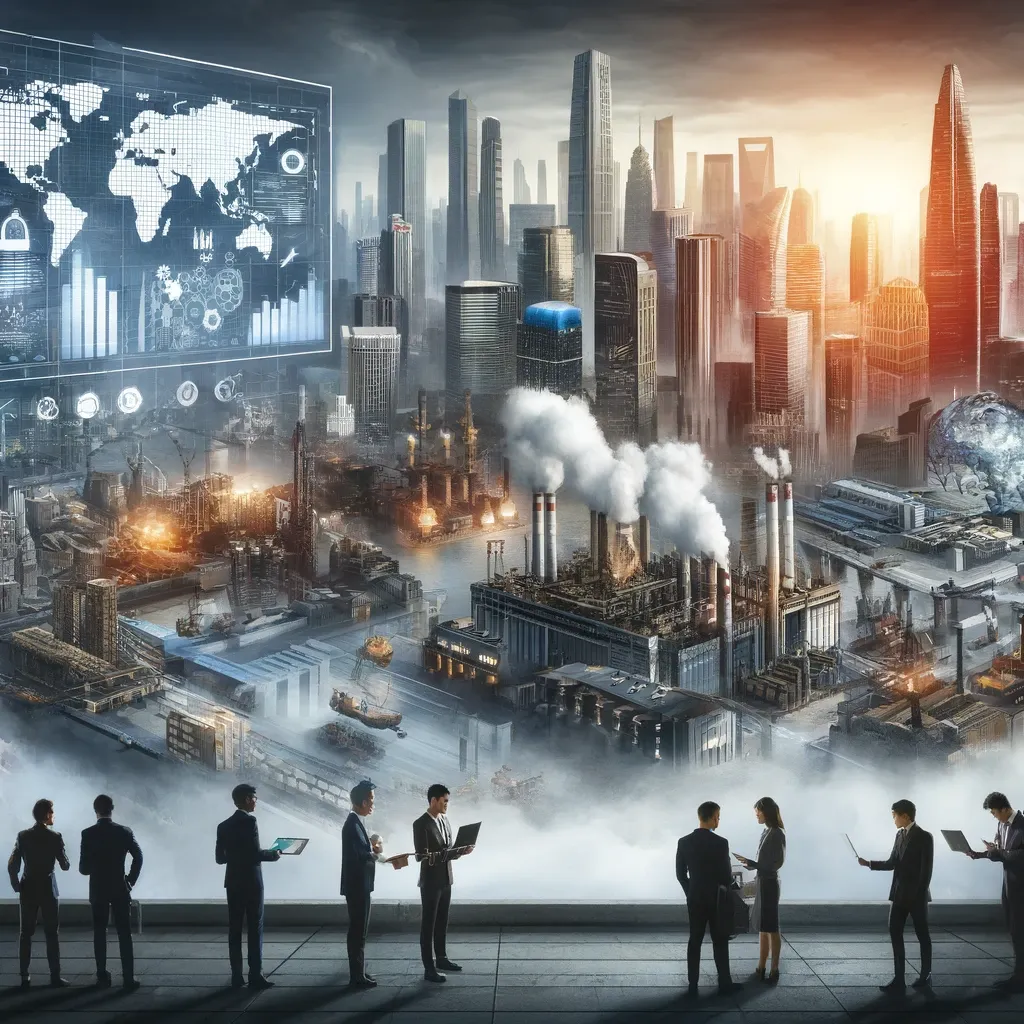The world is shocked by China's Shock 1.0. They won't let 2.0 happen easily.

China's economy is undergoing a painful transition as Beijing tries to pull it out of the downturn caused by the COVID-19 pandemic and the real estate debt crisis. The government of Chinese leader Xi Jinping is supporting the so-called "new three" industries - solar panels, electric vehicles, and lithium-ion batteries - to stimulate its economy. It is already actively producing and exporting these goods. In particular, Chinese manufacturers are producing so many solar panels that the resulting global surplus and falling prices are leading people to use them to line their garden fences. This is just one of the sectors the world is preparing for in the next phase of the "China shock."
In these industries, there was a confusion known as the China Shock 1.0, a term coined by David H. Autor, David Dorn, and Gordon H. Hanson in 2016, in an article about the country's economic growth and its impact on global trade and labor markets.
Started its development from poverty
Communist China began economic reforms in 1978, opening up its economy and allowing for more private entrepreneurship. The country's growth has been explosive, with GDP increasing more than 80 times since then. This growth was driven by rapid industrialization, which turned China into the world's factory.
A huge sector of production
His vast manufacturing sector produced millions of products, which he exported at low prices. The world welcomed China into its ranks, heralding an era of globalization that benefited companies from the U.S. and other countries. However, this came at a huge cost to communities in the U.S.
14 May 2025
14 May 2025
14 May 2025

- Many workers have lost their jobs to China. This is what is called the "China shock."
Three new strategic industries
Right now, China is focusing on three new strategic industries that are drawing the world's attention. This time, however, Western countries are not letting Beijing off the hook—especially because China is aiming to develop its own supply ecosystem in these areas.
"The industrial economies of OECD countries are facing new economic challenges due to China's strategic competition in these key growth sectors," said international economist Rajiv Biswas, author of "Asian Megatrends."This competition is even more brutal due to deflation in China, which has become the only major economy in the world facing negative consumer prices.
Response of the West's actions
What are the USA and the rest of the world doing about "China Shock" version 2.0?
- The world will not be caught off guard this time by the increasing dominance of China in new promising industries. "It is likely that the strategic competition between the US, the European Union, and China will continue in the long term in the field of advanced manufacturing technologies," said Biswas.
- Many companies are already diversifying their supply chains away from China for a number of products.
The CHIPS Act provides $52 billion in subsidies for manufacturing, research, and workforce development. The U.S. Inflation Reduction Act also encourages investments in clean energy.
On Tuesday, the Ministry of Energy announced a $75 million investment in the development of a research center to strengthen domestic supply chains for critical minerals.
At this time, U.S. Treasury Secretary Janet Yellen is in China meeting with senior Chinese officials. The Treasury Department, announcing her visit in a press release, stated that she will "directly discuss unfair trade practices with her Chinese counterparts and emphasize the global economic implications of China's industrial overcapacity."
The USA is also taking measures to stimulate domestic chip production. To this end, the European Chips Act has been adopted.
Response from China
How does China respond to the actions of the West?
- China views the response from the United States as an attempt to contain its growth.
Economist Biswas said that China is also reducing risks by increasing trade with Southeast Asia, where the middle class is developing. He mentioned that other major emerging markets targeted by China include Africa and Latin America.
Last year, according to Bloomberg, China sent more goods to Southeast Asia than to the United States for the first time, signaling a shift in the direction of global trade flows amid a changing geopolitical landscape.
Economists at Nomura wrote in a note on March 15 that the campaign season for the U.S. presidential elections this year is likely to heat up some trade issues. They believe: "We think that deflation in export prices and excess capacity in several strategically important sectors could lead to increased trade tensions later this year, and possibly in the future."
Tags
Comment
Popular Offers

Subscribe to the newsletter from Hatamatata.com!
Subscribe to the newsletter from Hatamatata.com!
I agree to the processing of personal data and confidentiality rules of Hatamatata











